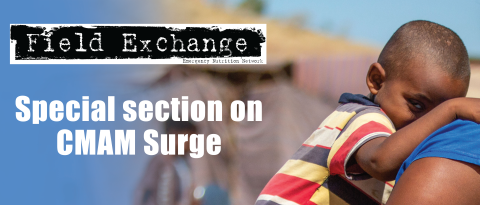UNICEF and WFP partnership framework to address wasting in children globally
UNICEF and the World Food Programme (WFP) have launched a new partnership framework to support the work of both agencies to enact a paradigm shift that places emphasis on prevention, while accelerating actions for the early detection and treatment of wasted children.
In 2015, countries committed to eliminating all forms of malnutrition by 2030 as part of the Sustainable Development Goals (SDGs), including child wasting, with a global target to keep the prevalence of wasting below 3% by 2030. However, progress towards meeting this target has been hindered by fragmented approaches and unpredictable financing. UNICEF and WFP are now pursuing a more purposeful, systematic and accountable collaboration that leverages their collective strengths more effectively. Both agencies will play a key role in supporting national governments to reach global targets, with UNICEF serving as the lead coordinating agency and WFP as an essential partner, particularly in fragile contexts. The Partnership will focus on fragile contexts where UNICEF and WFP have a unique opportunity to streamline their operations and achieve greater impact, scaling up operations in selected countries from the Sahel and Horn of Africa regions. These include Ethiopia, Chad, Mali, Niger, Somalia and South Sudan. Ways of working are detailed in a partnership framework matrix.
The new framework represents a paradigm shift, placing emphasis on early prevention so that children never become wasted. To this end, WFP and UNICEF will identify context-specific actions to support sustainable and resilient systems and related capacity building of national institutions to ensure that wasting is prevented from pre-conception throughout the life cycle. For when prevention fails, UNICEF and WFP will accelerate actions to support the integration of early detection and treatment services for wasted children into primary health care and other routine and community-based services. This will aim to make treatment easier, shorter, less costly and more effective and will include the generation and use of evidence on simplified treatment approaches.
Regional and country teams from both agencies are working together in new ways to ensure that millions of vulnerable children receive the support they need while incorporating a strong learning agenda to inform further expansion to additional countries and regions. Both agencies call on all partners, including governments, other United Nations agencies, non-governmental organisations, the private sector, foundations and international financial institutions to mobilise the funding, support and capacities required to meet these urgent needs.
The UNICEF-WFP Partnership Framework coincides with the launch of the Global Action Plan (GAP) on Child Wasting, and as such, it offers a unique opportunity to build on the country-level, government-led agendas being developed under the GAP. The Partnership Framework is thus a distinct but inter-connected part of UNICEF and WFP’s work on the prevention, early detection and treatment of child wasting. The Global Action Plan Roadmaps are being developed under the leadership of national governments. The role of UN agencies is to support the development of these Roadmaps, and to identify their distinct contribution to support their implementation. As they identify these opportunities, UNICEF and WFP teams will guided by the Partnership Framework to support the efforts by national governments.
Read the partnership agreement here.
Subscribe freely to receive Field Exchange content to your mailbox or front door.


